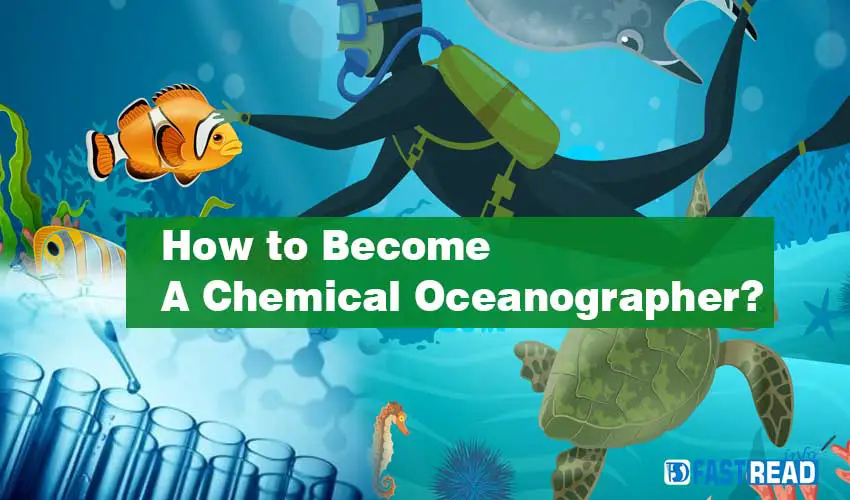How to become A Chemical Oceanographer, Chemical Oceanographer Salary, Chemical Oceanographer Career, Chemical Oceanographer Eligibility, Chemical Oceanographer Job Description
It is a great career option as there are many opportunities for the students who want to do something new. If you also want to go into this industry and are looking for essential information related to it, then read our entire article today and know how you can become a Chemical Oceanographer.
What is a Chemical Oceanographer?
First of all, let us inform you that a chemical oceanographer is a professional whose job is to analyze the composition and quality of sea water. Explain that these are professionals who study the chemical reactions taking place on the ocean floor as well as keep an eye on the overall composition of the water. Those people who are curious to study about deep water can be very successful in this field.
How to become a Chemical Oceanographer ?
Students who want to become a Chemical Oceanographer and for this they have to first pass their class XII with subjects like Physics, Chemistry and Mathematics. After that the candidate should have a B.Sc degree in the subject like Marine Science, Geology, Botany, Chemistry, Applied Science. After that the candidate can also do post graduation in Oceanography. After completing his studies, he can apply to work as a Chemical Oceanographer in various private and government sectors.
Qualifications to become a Chemical Oceanographer
- Candidate must have done B.Sc in Marine Science.
- Candidate must have done graduation in Geology.
- The student has completed a degree in Botany.
- Candidate must have done graduation in Chemistry or Applied Science.
- Post Graduation in Marine Science or Oceanography.
- MTech in Oceanography.
- The student should have knowledge of computer and English language.
- Must have an affinity for marine life and deep waters.
Chemical Oceanographer Job Description
The information about the work that the candidate has to do while in this post is as follows:
- To conduct geological survey.
- To study and analyze sea water.
- Collecting information about the composition of sea water.
- Keeping an eye on the chemical reactions taking place inside the sea water and knowing how it will affect the sea water.
- Gathering important information about the deep waters under the sea.
- To study about the physical and chemical properties present in sea water.
Age Range
Interested student must be up to 17 years of age at the time of enrolling in the course.
Students who belong to any reserved category are exempted from age limit as per the rules of the government.
Chemical Oceanographer Career
To work as a Chemical Oceanographer, there are vast job opportunities available to any student as this field is quite spread today. Therefore, when the student completes his studies, he gets a chance to work as a scientist or researcher in the public and private sector. Apart from this, the candidate also gets job opportunities in the Department of Oceanography.
Chemical Oceanographer Salary
The candidate who works for the post of Chemical Oceanographer gets a salary of about Rs 40,000 to Rs 50 thousand in the beginning itself. Also, let us tell you that when he gets experience of a few years, then he can get a salary package ranging from 60 thousand rupees to 80 thousand rupees every month depending on his experience and his qualification.
What does a Chemical Oceanographer do?
They are essentially oceanographers, but instead of studying the ecology, biological life, and geology of the oceans as a broad subject, they investigate the chemical composition of this particular environment. The chemistry of our oceans is important. Many plant and animal species have evolved to thrive in certain acidity and cannot thrive when seawater is too acidic or not acidic enough. When the chemical composition of an ocean becomes too unbalanced, it can have profound effects on its ecology.
One of the most important roles they are working on right now is monitoring ocean acidification. The oceans are a net carbon sink, but acidification is increasing and has had a measurable effect on acid levels in the ocean – increasing carbon emissions have resulted in coral bleaching and are under serious threat. As ice caps melt, ocean acidification may be diluted in some areas. Chemical oceanographers may work with environmental engineers to troubleshoot these problems and attempt to restore balance.
It’s not just coral and it’s not just about climate change. They will look into the problems caused by industrial chemicals and pollution and advise on policy. They may also serve as government advisers, providing evidence for court cases where civil action is taken against a business.

